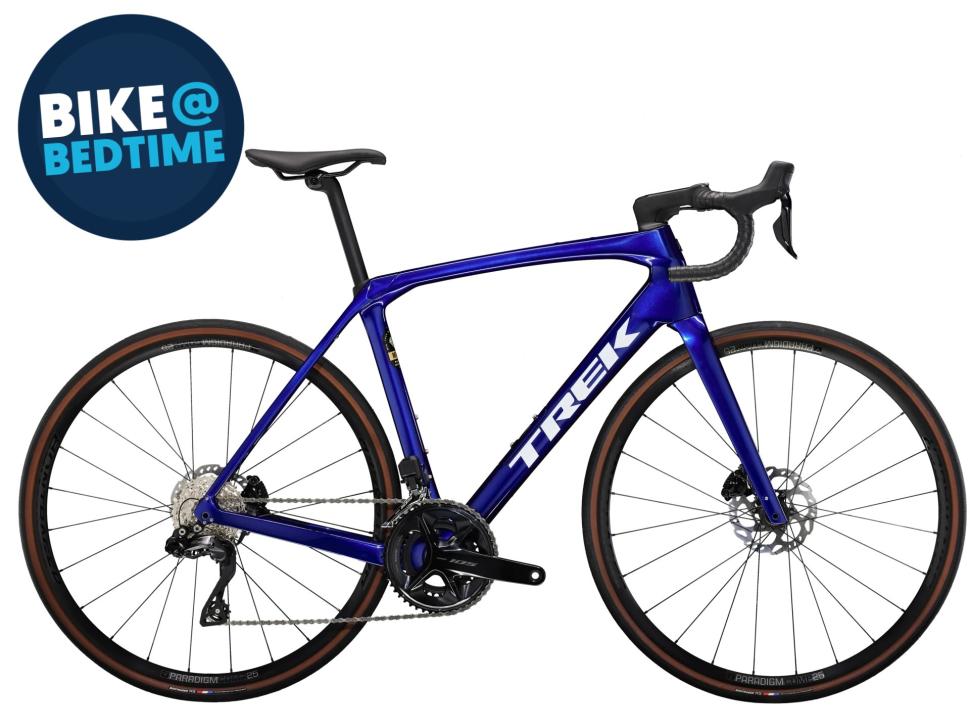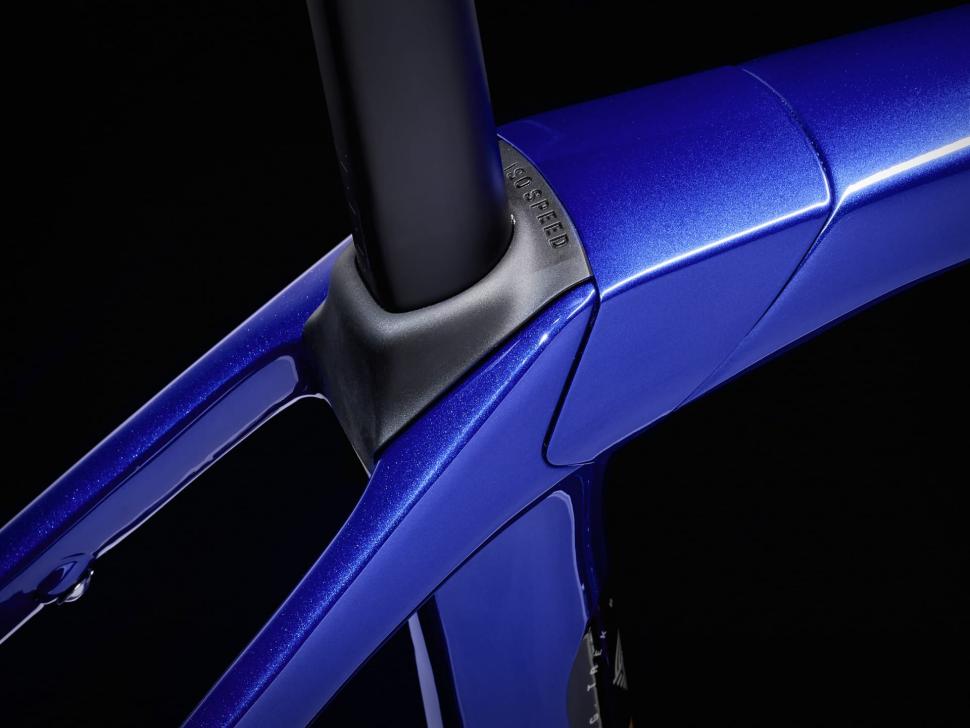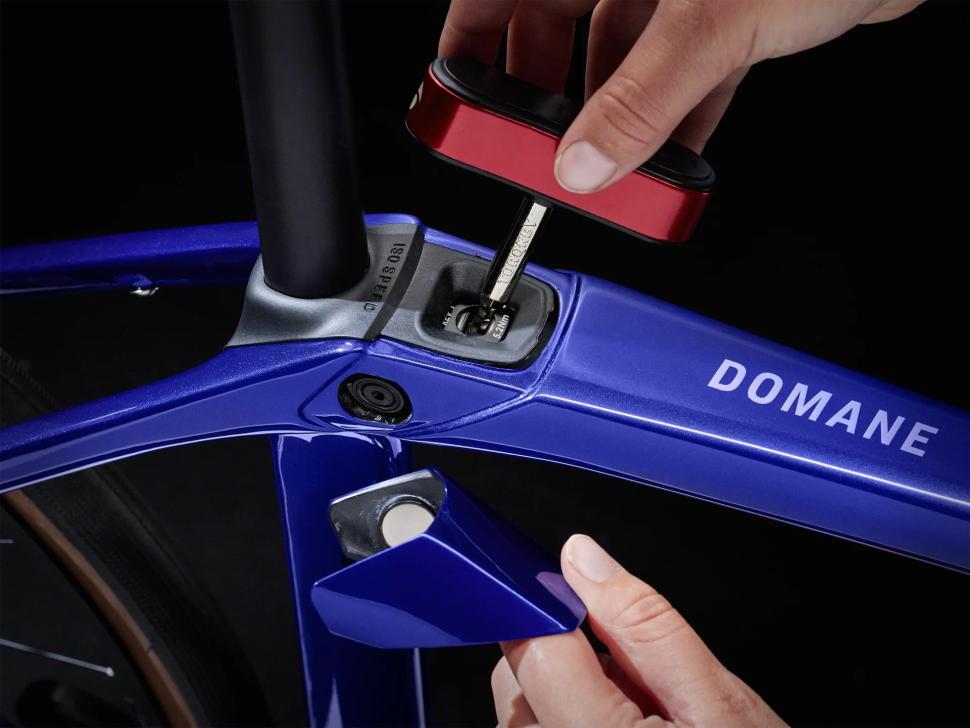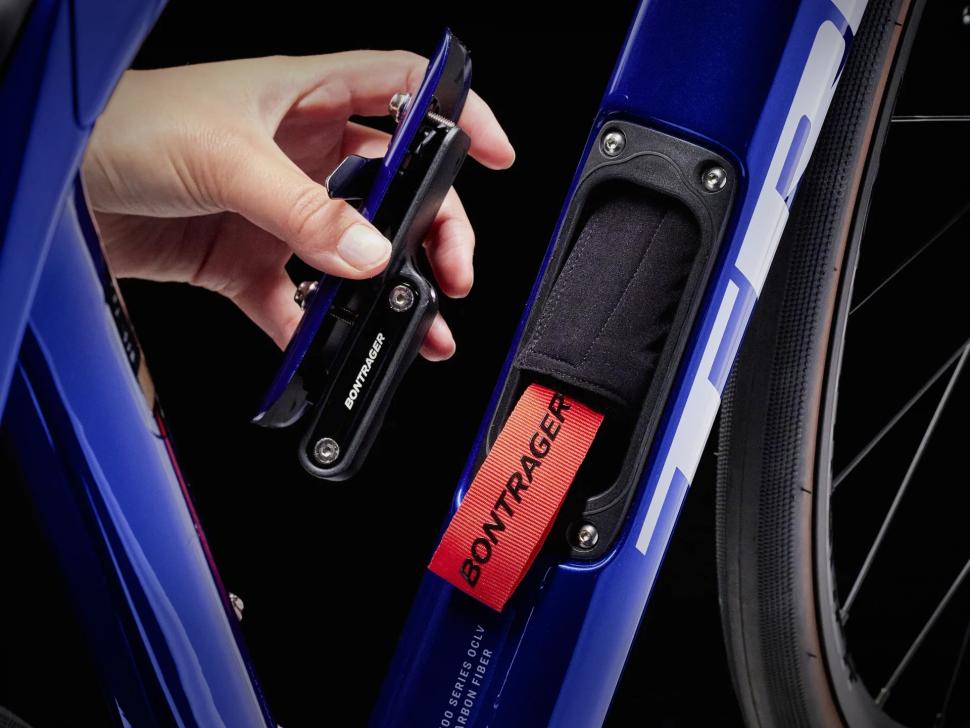- News
- Reviews
- Bikes
- Components
- Bar tape & grips
- Bottom brackets
- Brake & gear cables
- Brake & STI levers
- Brake pads & spares
- Brakes
- Cassettes & freewheels
- Chains
- Chainsets & chainrings
- Derailleurs - front
- Derailleurs - rear
- Forks
- Gear levers & shifters
- Groupsets
- Handlebars & extensions
- Headsets
- Hubs
- Inner tubes
- Pedals
- Quick releases & skewers
- Saddles
- Seatposts
- Stems
- Wheels
- Tyres
- Tubeless valves
- Accessories
- Accessories - misc
- Computer mounts
- Bags
- Bar ends
- Bike bags & cases
- Bottle cages
- Bottles
- Cameras
- Car racks
- Child seats
- Computers
- Glasses
- GPS units
- Helmets
- Lights - front
- Lights - rear
- Lights - sets
- Locks
- Mirrors
- Mudguards
- Racks
- Pumps & CO2 inflators
- Puncture kits
- Reflectives
- Smart watches
- Stands and racks
- Trailers
- Clothing
- Health, fitness and nutrition
- Tools and workshop
- Miscellaneous
- Buyers Guides
- Features
- Forum
- Recommends
- Podcast
feature
 2024 Trek Domane SL 6 - 1
2024 Trek Domane SL 6 - 1Is this the ultimate smooth ride? Check out the Trek Domane SL 6
The Trek Domane SL is a super-popular road bike – maybe even an all-road bike when set up with the right tyres – that offers a smooth ride courtesy of IsoSpeed technology that helps to damp both small vibrations and bigger lumps and bumps. Let’s take a look at what’s going on here…
Trek introduced IsoSpeed over a decade ago – way back in 2012, if you’re taking notes – although it has developed over the years. Rear IsoSpeed was first, decoupling the top of the seat tube from the rest of the frame.
What does that mean? Although the seat tube is fixed to the bottom bracket area as normal, it isn’t moulded to the top tube or seatstays. Instead, the tubes are joined by a pivot, allowing more flex than would otherwise be possible. This leads to more movement at the saddle. The idea is that this takes the edge off big hits and smooths out smaller vibrations so that you feel fresher for longer.
Trek did offer a front IsoSpeed system for a while – a rocker cup at the top of the headset that allowed the fork’s carbon steerer to flex backwards/forwards – but that was ditched when the latest update was announced in September 2022.
What effect does the IsoSpeed technology have out on the road? When you’re riding on well-surfaced tarmac, IsoSpeed doesn’t feel any different from normal, and even over rough roads, it’s subtle. In some ways, it feels like running wide tyres at lower pressures than usual although, unlike big tyres, it never feels squishy when you get out of the saddle and give it the beans.
You get just a bit of movement to muffle what’s going on beneath your wheels. Hit a deep pothole at full speed and you still feel it – just slightly less than you otherwise would.
The main advantage, though, isn’t the protection from the big hits, it’s the smoothing you get from the smaller stuff: little holes, manhole covers, drains, frost damage, badly patched tarmac, kerbs on and off the cycle path… It comes in handy over cobbles too, if you have any of those around your way or fancy a trip to Northern France or Belgium.
IsoSpeed doesn't eliminate bumps and vibrations from any of this stuff, it just tones it down. The rougher the surface, the bigger the difference it makes.
The Domane isn’t a gravel bike but it will take tyres up to a sizeable 700 x 38mm without mudguards (and 35mm tyres with mudguards) and it’s great for shortcuts to link up two sections of tarmac – towpaths, hard-packed tracks, and stuff like that.
The Domane’s geometry is more relaxed than that of something like Trek’s Madone – you get a more upright, endurance-friendly ride position here. It’s still a bike with a performance edge, though, Trek saying that it has been developed using extensive CFD (computational fluid dynamics) testing to make it more aerodynamic than the previous generation. There are no specific claims relating to aero efficiency, but the Kammtail Virtual Foil (KVF) tube shaping is reminiscent of the speed-focused Emonda and Madone frames.
With a threaded T47 bottom bracket, hidden mudguard mounts, and a storage compartment hidden inside the down tube, the Domane SL is a practical option too. There’s space in there for a BITS bag (Bontrager's internal storage solution) to store a spare tube, CO2 inflator/cartridge, and two tyre levers with space to spare, with the bottle cage then fitting on top of this. You also get mounts on the top tube for a bento-style box or top tube bag. This is a bike that’s more than capable of hauling everything you need for single-day adventures.
The latest Domane designs are lighter than previously. Trek claims a complete bike weight of 8.9kg for the 2024 Trek Domane SL 6, built with a Shimano 105 Di2 groupset. This model is priced at £4,175. A similar bike fitted with SRAM’s Rival AXS drivetrain is £4,625.
Mat has been in cycling media since 1996, on titles including BikeRadar, Total Bike, Total Mountain Bike, What Mountain Bike and Mountain Biking UK, and he has been editor of 220 Triathlon and Cycling Plus. Mat has been road.cc technical editor for over a decade, testing bikes, fettling the latest kit, and trying out the most up-to-the-minute clothing. He has won his category in Ironman UK 70.3 and finished on the podium in both marathons he has run. Mat is a Cambridge graduate who did a post-grad in magazine journalism, and he is a winner of the Cycling Media Award for Specialist Online Writer. Now over 50, he's riding road and gravel bikes most days for fun and fitness rather than training for competitions.
Latest Comments
- the little onion 3 sec ago
The other thing about the changes in Paris is that it is just so much more pleasant than it was before. Not only is the air cleaner, but the...
- froze 57 min 49 sec ago
Replace those flimsy shutters with steel security bars, or they could use both together with the security bars on the outside of the shutters. ...
- lonpfrb 1 hour 33 min ago
Glad to see they haven't lost the plot on sustainably, oh, never mind...
- Rendel Harris 3 hours 25 min ago
She may have a disability and have the car through Motability. She may have recently lost her job and the car dates from more prosperous times. For...
- TBR 3 hours 58 min ago
I got myself a klickfix freepack sport with the seatpost mount about 15 years ago which does exactly the same with more distance between saddle...
- wtjs 4 hours 53 min ago
Traffic lights should routinely be programmed to turn red where sensors show speeding drivers are approaching...
- David9694 5 hours 19 min ago
Mum shocked as driver crashes into Helston house in the night...
- Rendel Harris 5 hours 35 min ago
By my reckoning there are eight comments from cyclists who don't think it's necessary, five comments from cyclists who think it's good, four...
- Rendel Harris 5 hours 59 min ago
Well obviously they couldn't touch the central line because there was traffic coming in the opposite direction and so they had to pass you within...
- David9694 6 hours 1 min ago
What are left with, from among the individual builders listed here I wonder, how many are taking orders? https://www.framebuilding.com/custom_uk...



Add new comment
9 comments
I have had a Domane since 2016. it's the older iteration with dual iso-speed and rim brakes. I totally love this bike. It transformed my riding from the older Boardman bike i had at that time. The more upright position was better for my aging back (53 now; 46 when i bought it). Latterly, i had been looking at replacing my Domane, as it is starting to look a bit tired; that was until i started looking at the price of replacing it! One thing i woudl say is that Trek are premium priced in comparison to rival equivalents. I would really like a like for like replacement, but have started looking at options such as the Canyon Endurace as the specifications are better for the same price.Come on Trek, get those prices down!
What do you mean it is starting to look tired?
Spend the money on a cycling holiday instead! Or stick it in your pension and retire earlier so you can cycle all day every day earlier 😍😍
More like an ad than an article. Lots of complaints about the rear isospeed breaking, creaking, and seat post slipping even on reviews on Trek's own site. Never mentioned here.
Yeah - and saying it's lighter than previous versions is a funny way of saying it's still heavy (& a lot more money than most rivals, although I've heard after-sales customer service is very good so that may contribute).
Heavy?? Really......under 9kg is a light bike, no matter what weightweenies think.
This obsession with weight is an absolute joke......especially when most cyclists don't race.
Correct. I have no problems on the group rides I go on (I'm never the fastest or the slowest) and have never owned an aero bike, nor a bike under 27 lb / 12 kg. I'm aware there are faster groups, but I have no need to join them.
No, it really isn't a light bike at nearly 9kg. And at premium prices, it compares even more unfavourably to the competition. You don't have to be a weight weeny to know it's still pretty porky (no doubt that isospeed is a large contributor there but these days with wider rims and tyres and lower pressures, it's probably not needed unless you are going off tarmac). The majority of its rivals are nearer the 8kg mark.
No, it really isn't when many bikes from rival brands are up to a kg lighter than the version being written about here.
I get that the Iso Speed contributes to that but it's really not a joke to expect this SL6 costing more than £4,000 to be lighter.
Models further up the budget hierarchy are lighter but still not quite on a par with many rivals. So, I guess the question is how much you value the Iso Speed.